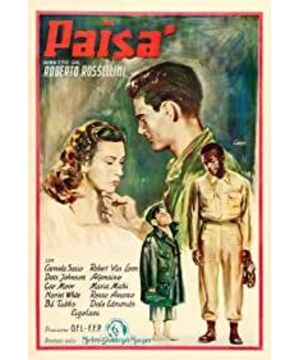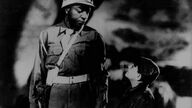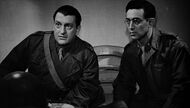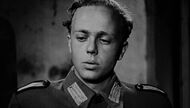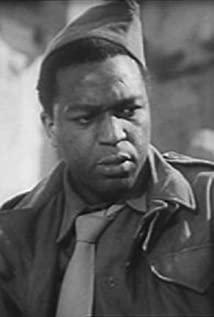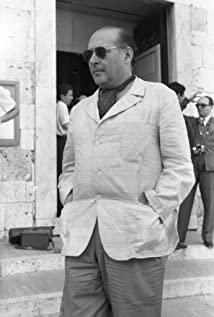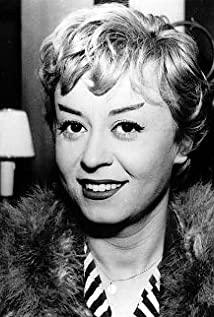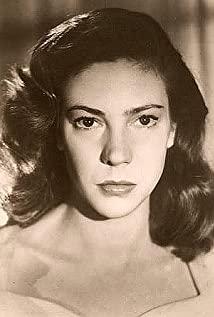Several representatives of Italian neorealism, I prefer Robert Rossellini, his realism has a strong poetic romantic mood, and it also reflects the director's sympathy and optimism about life. of mind.
The war trilogy takes us into the battlefields of World War II from a different perspective. Especially in this war, from the perspective of soldiers, guerrillas, medical staff, children, priests, prostitutes, and civilians in these countries, we can see the cruelty of war and the good and evil of human nature. In the two scenes, one is the attitude of Catholics towards Protestants and Jews and at the end of the movie, the German soldier's vision of building a "new world" in the face of failure to break the embankment, he emphasizes this deep theme, why there is war? He is not simply greed in human nature, but also deeply influenced by different cultural tones, different values, and different life backgrounds. And why there is greed, the ugliness in human nature, in the chapter on prostitutes and children, the director of the Buddha gave us another answer, the innocent adult crime of children, and the degeneration of prostitutes is because of the background of society.
I think this movie is the most realistic of his several realist period films. First, the shooting skills of the entire film reflect the most realistic style. The unmodified battlefield colors and the jump-cut editing skills are very consistent with the documentary style. Second, it does not interfere with the director's viewpoint and guidance as a whole, and uses less subjective lens, which allows us to have our own conclusions and feelings about these social and objective phenomena.
The different tones of several chapters make people feel more mixed. And the director will use the contrast method in particular. Looking at it as a whole, I will be grateful for life and reflect on myself. I think this is a good movie.
There is a place in the movie in the chapter of Catholics and Rabbits, when Italian Catholics surrounded the American Catholics to question him why he was with Jews, the two Jews and Protestants originally appeared on the camera, However, suddenly, from the same perspective, two people disappeared from the camera. why is that? A blunder of skill or a poetic arrangement?
View more about Paisan reviews


